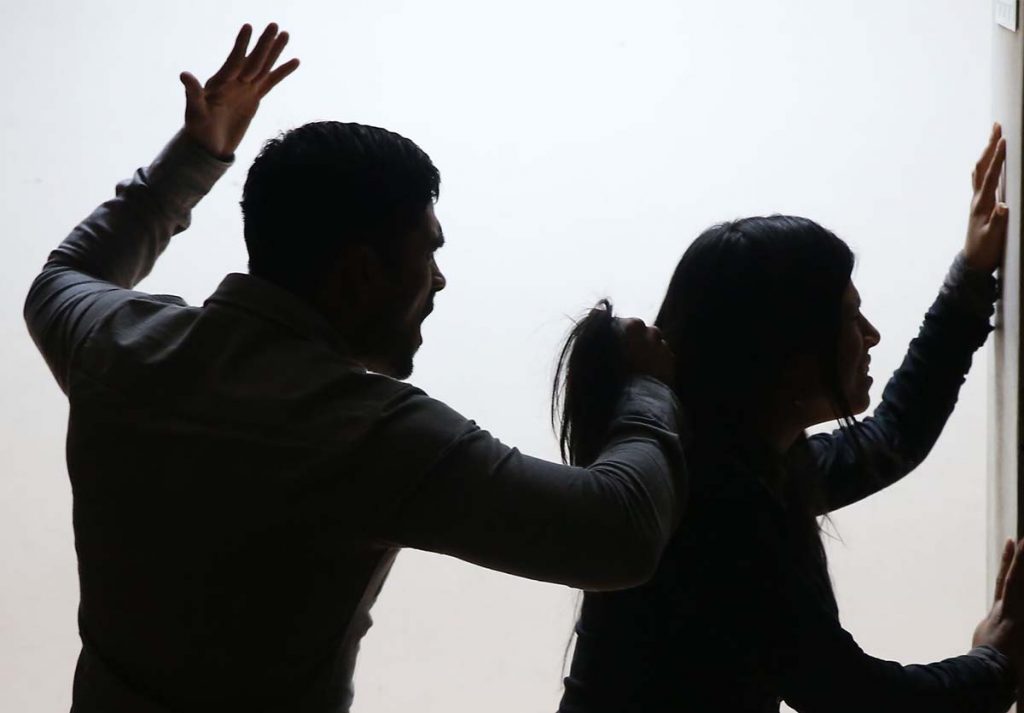First, let me say that the Chinese Coronavirus is a real thing.
It’s a virus that has a big impact on vulnerable populations such as those with preexisting conditions or the elderly.
For the younger or healthier populations though, the virus has minimal impact, if any. Many young people will likely never know they had it.
There is also a debate raging about the economic impact the virus is having.
What many people, especially in the media, don’t want to discuss is the lifelong impact the shutdown could have on many Americans.
For instance, let’s say there is a family of four with a husband, wife, and two kids.
The husband, forced out of his job by the government shutdown, can’t find work and is barely making it by with unemployment.
Sad, angry, and frustrated by his situation, he turns to drinking. Drinking fuels his anger and frustration from letting his family down.
He then begins to commit acts of domestic violence against his wife in front of their two children.
I’ve seen domestic violence from my mom’s second husband firsthand. It’s terrifying and you never forget it.
In reality, will a healthy father and his healthy family feel the impact of the Coronavirus itself more than the lifelong impact of domestic violence?
Of course not.
The impact of domestic violence is going to have a lifelong impact on all of them. It may even have generational impacts.
Perhaps no one thought about the impact of a father or mother committing suicide after being forced out of work and feeling they let their family down because they were told they were “non-essential.”
What is the child of that parent or their spouse going to feel for years after? Is the tradeoff worth it to them?
That doesn’t mean we don’t care about the impact of the virus on vulnerable populations. We do care.
What many Americans are saying is that there was no balance in this pandemic.
Instead of asking at-risk populations to stay home and out of the public arena, we told everyone to stay home.
Rather than having at-risk populations take extra precautions with the risk they faced, we told everyone they must be quarantined.
Now, the impact of this unbalance is becoming clear. Unemployment has skyrocketed as millions of Americans find themselves without work.
Depression, suicide, substance abuse, anxiety, and domestic violence are on the rise.
It’s not an unfair question to ask if those issues don’t have a much worse impact than those same individuals getting sick from Coronavirus.
Again, it doesn’t mean we don’t care about the lives lost from the virus. I have several grandparents who likely wouldn’t survive the virus given their health and age.
Yet neither of them would tell you that they felt shutting down the economy was a good idea!
In fact, they will tell you that they have lived a good life and while they don’t want to die, they don’t want to see our entire economy destroyed and lives disturbed in the worst way possible.
We have family members that can take care of them and mitigate the risks to their lives while still working and keeping our mental health in good condition.
My grandparents would also tell you that the tradeoff of freedoms for a false sense of security is not worth it.
The amount of freedoms being impacted by the coronavirus is staggering and should concern every American.
The power being used and taken by governors and mayors is unnerving, to say the least.
And as more data comes in, we are seeing that these power grabs were not necessary in the first place.
The virus is thankfully proving less deadly than originally thought. That’s great news!
Unfortunately, how many Americans who have had to deal with domestic violence or some other unintended consequence of the virus will feel it for the rest of their lives?
The impact of some of these issues may be felt in future generations.
A child who has been abused may be so emotionally impacted that they take that abuse to their own children. Forced quarantine isn’t an excuse to commit these acts.
It is, however, a consequence that was predictable.
I hope and pray that we can keep these instances as low as possible and the best way to do that is for the healthy among us to get back to work and back to normal as quickly as possible.
Then we take care of those that are at-risk and do our best to keep them from getting the virus.

